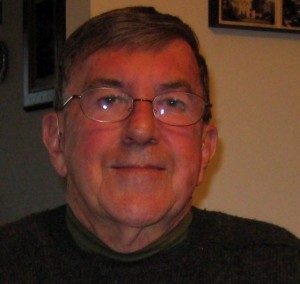
Behind Closed Doors
On 31 January 2011 Secrecy News returned to a subject that had been discussed earlier: the federal investigations of former NSA employee Thomas Drake for revealing classified information and of a former congressional intelligence committee staffer, Diane Roark, for assisting him. This latest article essentially quotes former NSA Deputy Director Barbara McNamara as saying Roark fell into the category of staffers that were, “overly intrusive and vindictive” and employed NSA employees as her personal informants. Since I personally know something of this business, I would like to add my own observations on the subject.
Diane Roark was certainly confrontational when dealing with NSA management on her frequent trips to the ‘Fort’. On the other hand NSA management repeatedly tried to treat her as they did any other outsider by withholding relevant information or through misleading statements and sometimes outright lies. Since she did have her own informants within the building, she called them on their prevarications. This did not sit well with managers who were used to concealing incompetence and inefficiencies behind a façade of empty technical rhetoric and bland generalizations. I was not one of her informants, but certainly was one of her fans as she uncovered the enormous amount of waste and incompetence that characterized NSA operations at the time.
Barbara McNamara is another story. She rose through the ranks principally as a very ‘good’ staffer who could anticipate problems and guide her succession of bosses through potentially career destroying situations. She was a “go to” kind of person beloved by senior management. When she became Deputy Director of NSA in 1997 under General Kenneth Minihan (USAF ret.) she fell out of favor. General Minihan is in many ways a very arrogant man, but is also very brilliant. He recognized that NSA had to break its Cold War culture and develop analytic and collection philosophies that could meet the technical intelligence challenges of the 21st Century. He initiated a number of programs to bring this about. McNamara and most of NSA’s senior management decided that this was a big mistake and fought him every step of the way. When McNamara was eased out in 2000, she left with the reputation (deserved or not) as the person who had prevented any real change in NSA’s way of doing business.
As for Tom Drake he appears an earnest and sincere advocate of a system (Thin Thread) which in reality had a number of flaws and imperfections that unless resolved would make it as useless and the failed Trailblazer Project. He appears not so much as violator of NSA classification as over enthusiastic whistle blower. But the courts may end up sorting this out.
Phi Beta Iota: Ken Minihan is one of the good guys. He was betrayed from within and did not have a strong enough intellectual cadre around him. Jim Clapper has fallen into the same trap. We are long over-due for flushing 80% of the IC “leadership” out of the system, flushing most of the contractors out of the system, getting in touch with reality through Global Coverage, welcoming GAO inspectors across the board, and, finally helping both the Executive and Congress make coherent Whole of Government decisions. Note: The 9-11 Commission was a cross between a political cover-up and a professional clown show. With the exception of Kevin Scheid, who shows great promise, those doing the interviewing (e.g. Gordon Lederman) had absolutely no clue about the craft of intelligence. Between the interviewers knowing nothing; those being interviewed being the wrong people or generally lacking ethics; and the oversight commission members being largely uninterested in actually getting to the truth behind Dick Cheney's day of infamy, all of this can charitably be described as Silence of the Gerbils.
See Also:
Diane Roark and the Drama of Intelligence Oversight
Barbara McNamara Interview by Gordon Lederman
Another Word on Diane Roark and Intelligence Oversight
ON INTELLIGENCE: Open Letter to the President



